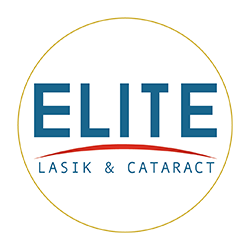October is Healthy Literacy Month and we polled several refractive surgeons about the LASIK questions they wish patients would ask. In yesterday’s post , we covered important questions about LASIK safety. Today, we delve into part two of “LASIK Questions Surgeons Want You To Ask” with a focus on what happens after LASIK.
Q: What is LASIK post-operative recovery like?
A: For the majority of patients, LASIK recovery is very fast and you’ll be able to resume most of your normal activities within a day or two. You will be instructed to take it easy, rest and be diligent about sticking to your schedule of eye drop medications. Typically the first few hours, up to a day or two, after the topical anesthesia wears off your eyes may feel slightly irritated, sensitive or dry. Other potential symptoms you may experience after surgery include halos around your eyes at night, tearing eyes, puffy eyelids and sensitivity to light. These should all diminish within a week. While these initial symptoms resolve quickly, the total healing period takes a little longer, typically from 3-6 months, during which time your vision will gradually improve.
Q: There are many surgeons who perform LASIK. How do I decide which one is the best for me?
A: One of the most important decisions you will make is the eye doctor you choose to perform your LASIK surgery. It’s essential to find a LASIK surgeon you feel comfortable with and who you trust to do a great job – in this case – to improve your eyesight. Look for a qualified surgeon who is board certified by the American Board of Ophthalmology and has lots of experience with the procedure. He or she should be eager to answer all of your questions and help educate you so you can make an informed decision, this should include making you fully aware of the risks and benefits in order to make the choice that is right for you.
Q: Will I ever need to wear glasses again in the future?
A: LASIK permanently reshapes the cornea to correct the vision you had at the time of surgery. However, like most people, once you hit your 40s, you may find it harder to focus on objects close-up. You’ll have what’s known as presbyopia, which occurs when the lens inside the eye becomes less elastic and can no longer change shape to bring things into focus clearly. Presbyopia affects everyone and is part of the natural aging process. You may eventually find you need eye glasses for reading and close work. If you have LASIK, it won’t prevent presbyopia or make it worse.
Q: If my vision should change in the future, can I have another treatment?
With modern LASIK, the number of patients requiring an enhancement treatment – which is a follow-up LASIK procedure – is less than 2 percent within the first 12 months. The potential for needing an enhancement increases about 1 percent a year; so over the course of a decade, the chance of vision changes requiring an enhancement is about 10 percent. While it is likely you are able to have an enhancement procedure, you will need to be carefully evaluated to determine if it is recommended for your eyes and vision.
